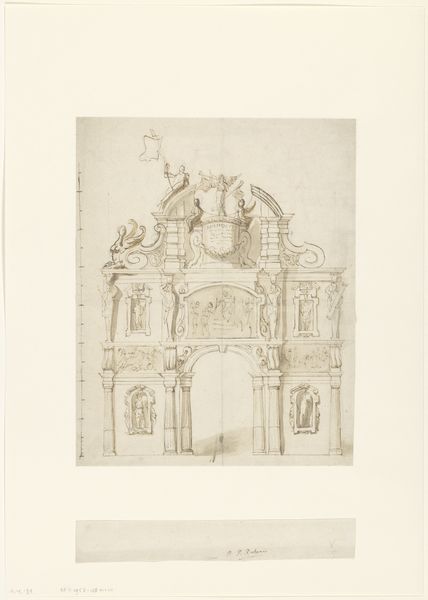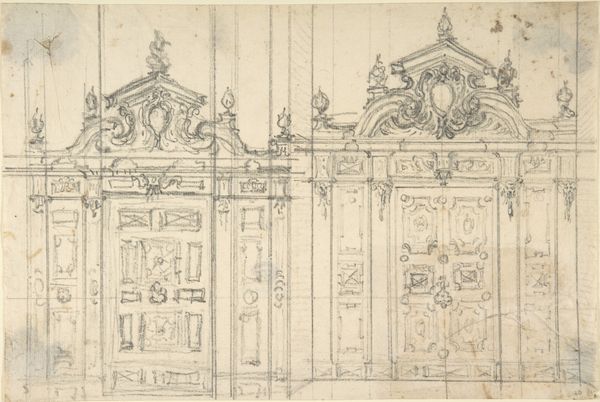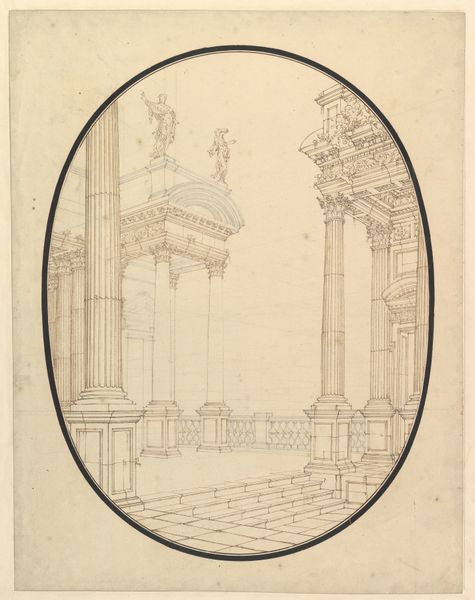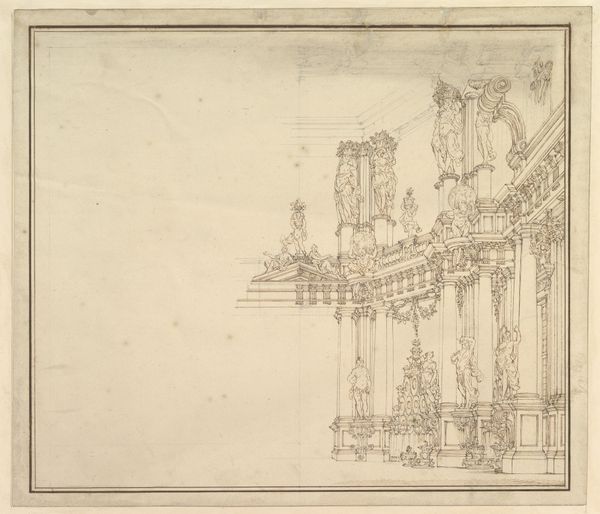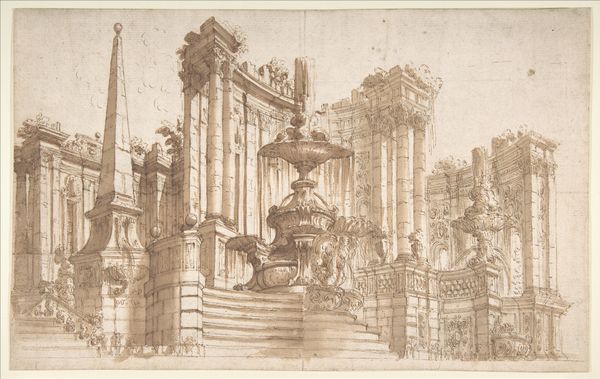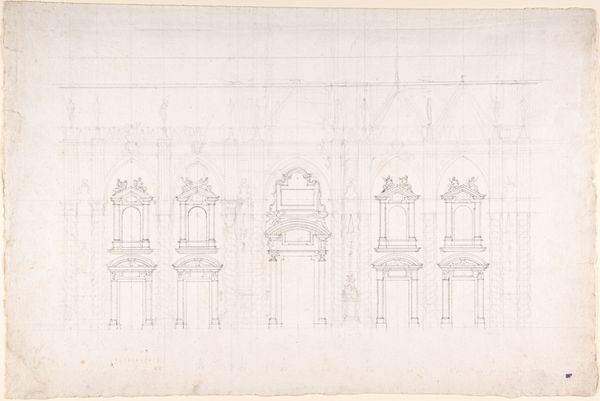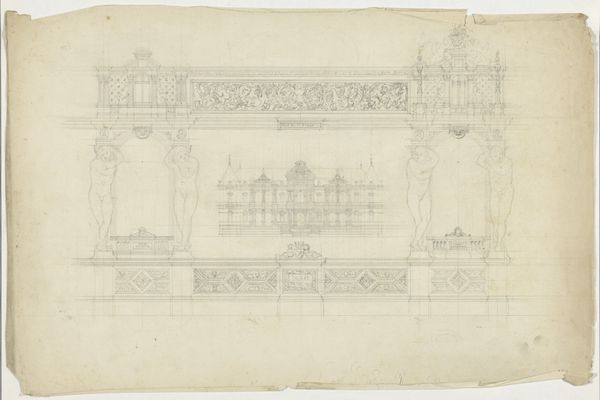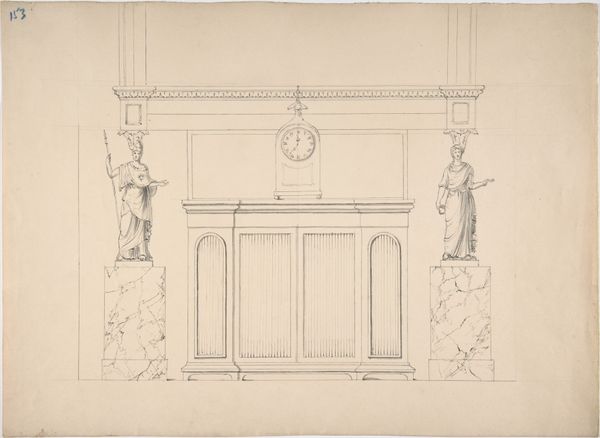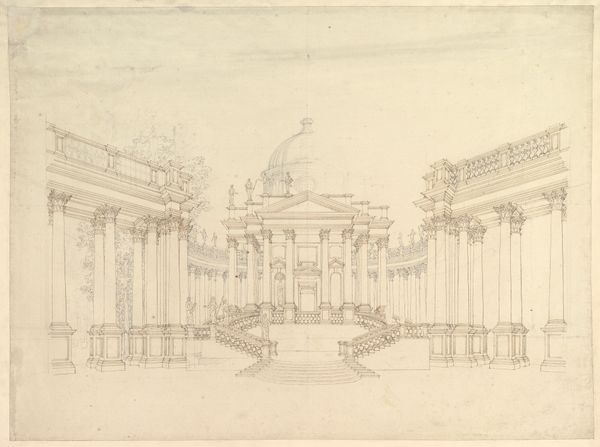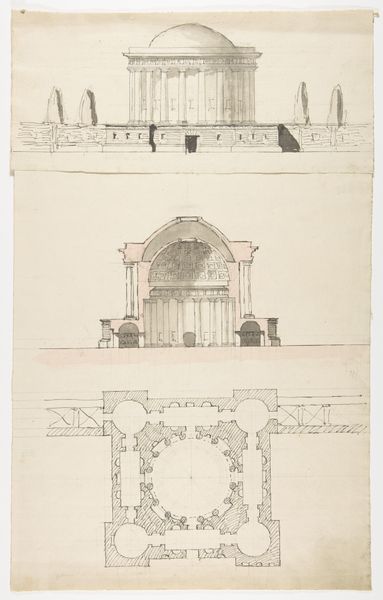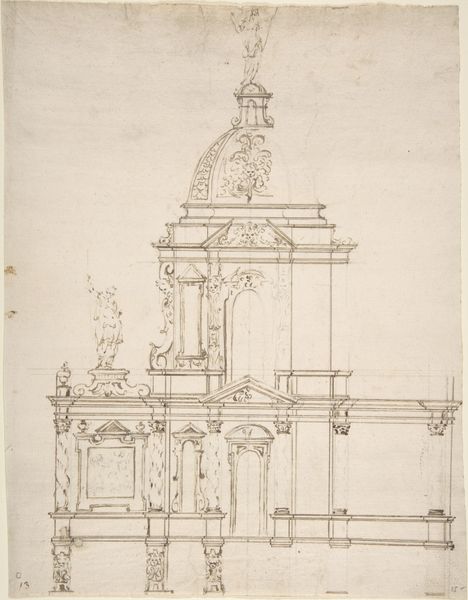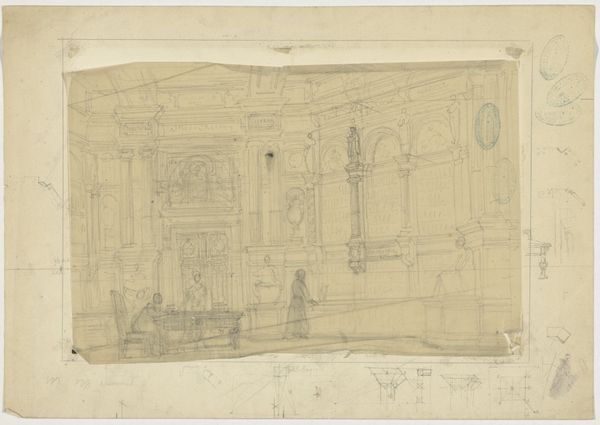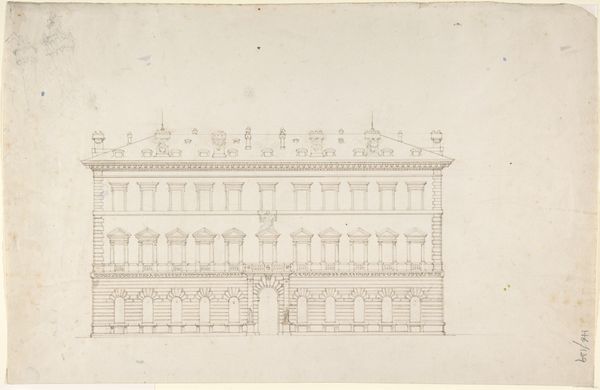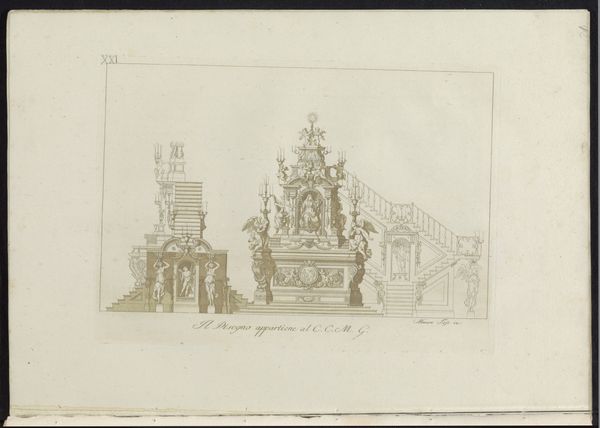
drawing
#
architectural sketch
#
drawing
#
amateur sketch
#
aged paper
#
toned paper
#
light pencil work
#
pencil sketch
#
incomplete sketchy
#
etching
#
pen-ink sketch
#
watercolor
Dimensions: sheet: 33.8 × 45.6 cm (13 5/16 × 17 15/16 in.)
Copyright: National Gallery of Art: CC0 1.0
Paolo Posi made this study for a fountain pavilion, or ‘macchina,’ in pen and ink around the mid-18th century. Such ephemeral structures were erected in Rome for public celebrations. The drawing gives us insight into the social function of art and architecture at the time. The fountain pavilion, with its elaborate ornamentation and imposing scale, would have served as a focal point for public gatherings, reinforcing the power and authority of the patron, likely a member of the Roman Catholic Church or aristocracy. Obelisks, statues, and flowing water all speak to the classical past, a visual language of power. Posi’s drawing, while preparatory, also speaks to the institutional context of art production. Artists like Posi relied on commissions from powerful patrons. To fully understand the drawing’s significance, one might consult archival documents detailing the commission, contemporary accounts of the celebrations, and other visual materials documenting similar structures. Ultimately, it is the work of the historian to reconstruct the social and institutional context that shaped both the creation and reception of this drawing.
Comments
No comments
Be the first to comment and join the conversation on the ultimate creative platform.
